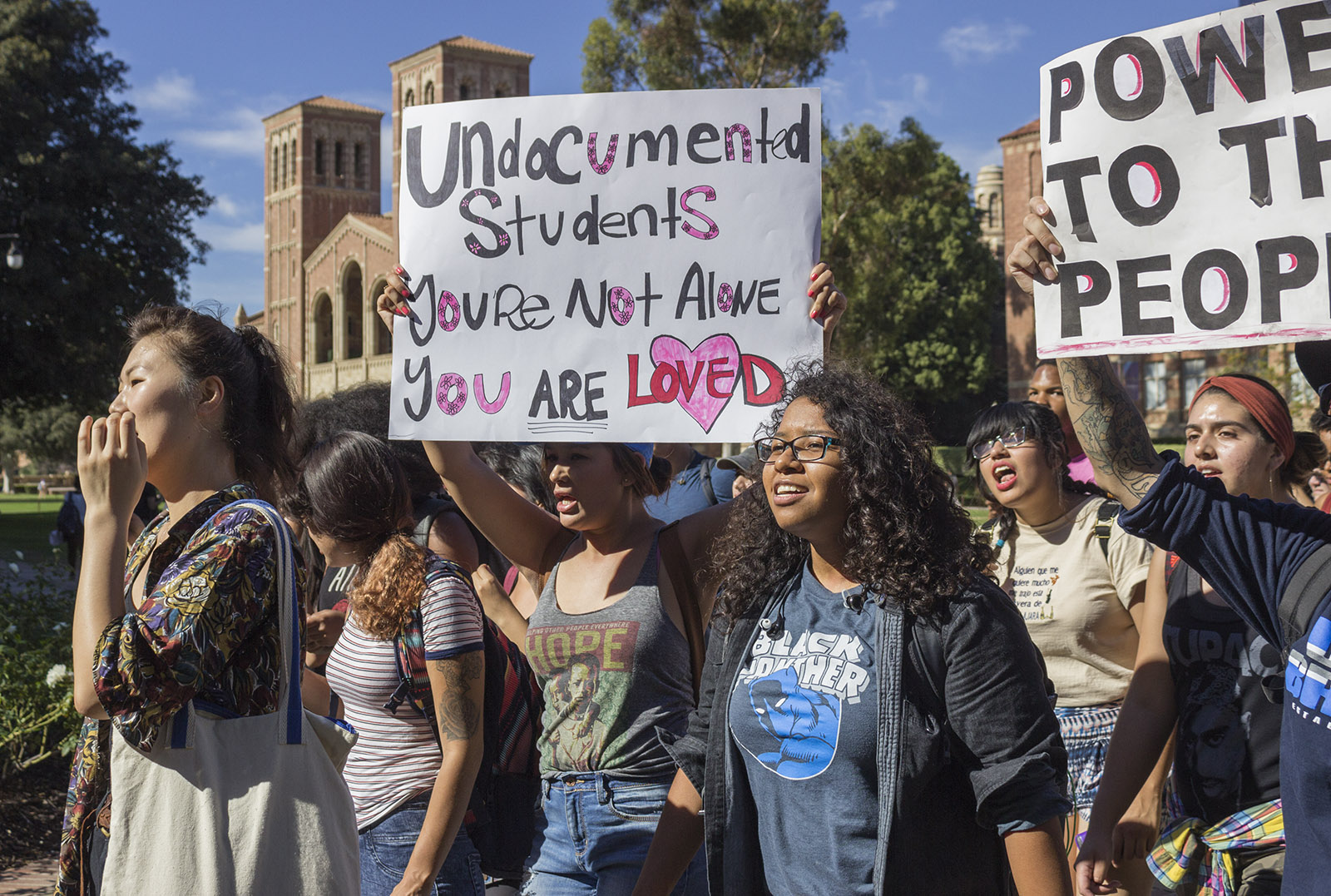UCLA groups host immigration law panel for undocumented students

UCLA community members have expressed support for undocumented students. Several campus organizations organized an immigration law information session to inform undocumented students of their rights. (Alyssa Dorn/Daily Bruin)
By Ankita Nair
Nov. 22, 2016 10:18 p.m.
Immigration attorneys and legal experts advised undocumented students about permanent residency options and how to interact with immigration officials Monday night.
About 100 students, faculty, alumni and community members attended the “Know Your Rights in Immingration Law” event at the UCLA School of Law. Several organizations, including the Undocumented Student Program, the University of California Undocumented Legal Services Center, IDEAS at UCLA and the Dream Resource Center hosted the panel.
Audience members received a small red card listing their rights and several other handouts with advice and answers to frequently asked questions.
At the event, Valeria Garcia, program director of the Undocumented Student Program said UCLA has the most undocumented students – more than 700 – in the UC, and that the university will work to protect them.
“We at UCLA have many undocumented allies,” Garcia said. “I really want you to know that the university is lucky to have you.”
[Related: UCLA, USC students collaborate on walkouts to protest marginalization]
Habiba Simjee, an attorney for the UC Undocumented Legal Services Center, said undocumented immigrants should remember to use their constitutional rights when dealing with immigration agencies like Immigrations and Customs Enforcement.
She said immigration agents could not enter homes and arrest undocumented immigrants without valid warrants.
“Do not let ICE trick you into thinking they are the police,” Simjee said.
Simjee also discussed how undocumented immigrants could apply for different visas, including those for people with family in the country, and for victims of human trafficking and other serious crimes. She added undocumented immigrants could also apply for immigration relief under some laws that allow them to avoid deportation. For example, the Violence Against Women Act allows noncitizen victims of abuse to stay in the country.
Vivek Mittal, an immigration attorney and a managing attorney of the Undocumented Student Program, said Deferred Action for Child Arrivals allows children who arrived in the United States illegally before age 16 to apply for a two-year work permit and not be deported.
Mittal also discussed advance parole, a DACA benefit which allows undocumented immigrants to visit family, study or work abroad.
However, he said students with DACA should avoid traveling abroad after Jan. 20 because he and other experts did not know what would happen to DACA after Donald Trump’s inauguration.
[Related: Students, faculty urge UCs to safeguard undocumented immigrants]
Other panelists talked about immigration trial proceedings and what families could do if someone they knew was arrested and detained. The panelists said most undocumented immigrants are not detained. Instead, they are given a court date because detention centers have a limited number of beds.
They also recommended families consult with an attorney if a family member is summoned to court because the government does not provide a public defender or government-funded counsel.
Willy Morales, a third-year psychology student, said he found the information session helpful. Morales, who is an undocumented student protected under DACA, said that he did not know he had some specific constitutional rights mentioned in the presentation.
“This presentation made me feel more confident and more comfortable about my state in the United States,” Morales said.
He added he is not concerned about staying at UCLA after Trump is inaugurated, but he is worried about getting a job if Trump decides to eliminate DACA.
The event ended with a question and answer session in which panelists collected notecards with questions written anonymously by the audience.

